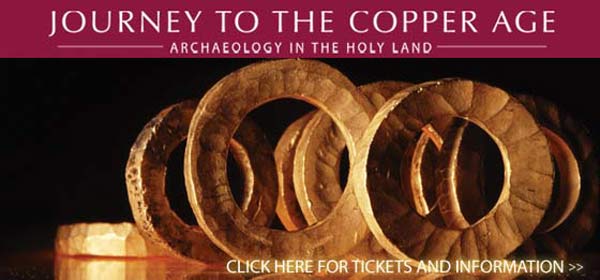| |
|
|
A wonderfully cohesive program brilliantly executed ... Zina Schiff is a first rate violinist fully up to the music's tremendous technical challenges ... who can get inside the soul of Bloch's extravagantly expressive music |
THE JEWISH CITIZEN
Young, wealthiest donors changing
the Jewish style of philanthropy
By Donald H. Harrison
 LA JOLLA, California —The president of the Jewish Funders Network, Mark Charendoff, says that the wealthiest philanthropists in the United States, both Jewish and non-Jewish, want to give more, not less, money to charitable causes. But that doesn't mean non-profit agencies should start firing up their photocopying machines to pump out requests for grants. LA JOLLA, California —The president of the Jewish Funders Network, Mark Charendoff, says that the wealthiest philanthropists in the United States, both Jewish and non-Jewish, want to give more, not less, money to charitable causes. But that doesn't mean non-profit agencies should start firing up their photocopying machines to pump out requests for grants.
To the contrary, said Charendoff, philanthropy increasingly is being molded by the "supply side" rather than by the "demand side." In other words,
Donald H. Harrison
rather than simply acceding to requests from charities for contributions, more and more philanthropists—especially the younger ones—have ideas that they want to see implemented. Toward that end, they search for charities that can be appropriate vehicles for their largesse.
Charendoff was in the San Diego area on Wednesday evening, November 28, to address potential JFN members at the coastal home of Murray and Elaine Galinson. He also previewed some of the issues to be discussed at the organization's March 31-April 3 international conference in Jerusalem, which Murray Galinson will co-chair. Chairman of the San Diego National Bank and a former chair of the board of trustees of the California State University and Colleges, Galinson is one of the decision makers for the disbursement of funds from several foundations, including his own family's.
The Jerusalem conference will bring together philanthropists "with no axes to grind" to discuss common problems they encounter in giving away huge sums of money. An example, said Galinson, smiling at his adult daughter, Laura, are inter-generational arrangements in family foundations. At what point does the younger generation become the driving force in such foundations?
As new generations of givers come to the fore, said Charendoff, philanthropy in the Jewish community is changing. "Philanthropy in the Jewish world used to be a very organized communal affair," he said. "We gave to a central address. They figured out what the needs were. They disbursed the money, and while that still happens, we know today the lion's share of Jewish philanthropic dollars no longer flow through a central address. They are being given by independent funders."
Although they represent a tiny fragment of the population, the super-rich are giving the greatest percentage of money received by non-profit organizations, Charendoff reported. "The richest 5 percent of the people in the United States will contribute 42 percent of all donations." That means "the not-for-profit charitable community of the future—whether in San Diego, or nationally, or in Israel—is going to be deteremined by independent funders who decide to get behind a project."
Before becoming president of the Jewish Funders Network, Charendoff helped to run the Charles and Andrea Bronfman Foundation, which donates millions of dollars to projects. One project initiated by the Bronfmans was Operation Birthright, which he said grew out of Charles Bronfman's concern that Israelis and American Jews were drifting apart. Although the program also is an important tool is the quest for "continuity" in the American Jewish community, the initial consideration was to strengthen bonds between the Jews of the two countries, he said.
Prior to the formation of Birthright, the Bronfman Foundation had routinely donated $1 million annually to help finance trips to Israel. Although considerably more was donated by the family at start-up, eventually Operation Birthright attracted other major donors once the outlines of the new program became clear. Today, Operation Birthright is one of only 104 charities that have budgets of more than $50 million. In Birthright's case, the figure is $80 million, Charendoff said.
Another JFN board member is a man whom Charendoff described as a "gentleman from Paris" who was very concerned following the Second Lebanon War about the families in northern Irael whose businesses had been devastated as a result of the extensive Hezbollah missile attacks. The warfare adversely impacted the education sytem, and this man, whom Charendoff did not identify by name, decided on his own initiative to do what he could to help.
Meeting with JFN, he decided to put up $10 million, seek an additional $10 million in matching funds from other philanthropists, then try to leverage that amount for even more in matching funds from the government of Israel to meet the emergency need.
Charendoff said in his role as JFN's president, he raised the idea in a phone conversation with another man, a man who hadn't been very involved in Jewish philanthropy. When he hung up, he felt that the man had been somewhat intrigued. A few days later, Charendoff was on a family vacation when he received a call from his secretary on his cell phone. "Were we expecting a check for $10 million?" the assistant asked. The donor "didn't even call, he just sent in the money," Charendoff said. He suggested that as a businessman, the donor was interested in value and liked the concept that his contribution could leverage so much other money.
The 900-members of the Jewish Funders Network come from throughout the nation, according to Charendoff. There may be a bit of a difference between the East Coast and the West Coast, suggested Marjory Kaplan, chief executive officer of the Jewish Community Foundation of San Diego, which helped make arrangements for the meeting. There is not so pronounced a tendency on the West Coast to start up new operations, she said. Rather, local donors prefer to see whether existing non-profit institutions would like to take ownership of a project.
A guest asked whether JFN donors are more likely to give their money to Jewish causes or to general community causes. Charendoff said he didn't have the breakdown, but that in either event, he believed that wealthy funders had more than sufficient money to contribute generously to both. He said no one should look upon a contribution to a general community cause as a contribution that should have gone to the Jewish community. The problem is not that the donor doesn't have money to fund the Jewish cause in question, he said. Rather, the problem is that those charities haven't made their cases persuasively to the funders. Many donors say they happily would donate more if they could find inspirational projects, staffed by people with whom they feel comfortable and can trust, Charendoff said.



SAN DIEGO JEWISH WORLD THE WEEK IN REVIEW
THURSDAY, NOVEMBER 29
Dorothea Shefer-Vanson in Mevasseret Zion, Israel: A concert deep in Israel's Elah Valle
Ira Sharkansky in Jerusalem: No need to sell his apartment in Jerusalem
Isaac Yetiv in La Jolla, California: Pardon the feeling of deja vu all over again
WEDNESDAY, NOVEMBER 28
Shoshana Bryen in Annapolis, Maryland: Annapolis conference creates false symmetry between Palestinian terror, Israeli response
Garry Fabian in Melbourne, Australia: Jewish Museum lands top tourism award... Yeshiva costs increase could affect Aussies... Flap over Israel marks Australian election campaign.
Donald H. Harrison in Santee, California: Creationist museum seeks to prove Bible
plus...
An invitation to be a correspondent... Join our volunteer correspondents and keep us posted on the Jews of your community or country.
TUESDAY, NOVEMBER 27
Shoshana Bryen in Washington, D.C. No negotiations expected at Annapolis
Donald H. Harrison in Lakeside, California: Jewish strands in the Lakeside tapestry
Eileen Wingard in San Diego: In Music, Number 1 is not always the best
MONDAY, NOVEMBER 26
Donald H. Harrison in San Diego: 102-year-old ponders humanity's future
Joe Naiman: If Appel's involved, baseball history is safe
Sheila Orysiek in San Diego: The Bella family circle goes from the coast to The Breakers on the shore to the beach
SUNDAY, NOVEMBER 25
Donald H. Harrison in San Diego: A call for reinvigorating Thanksgiving
Rabbi Baruch Lederman in San Diego: This worker put his trust in his boss
Max Schindler in San Diego: The Chain, a story from the Shoah
FRIDAY-SATURDAY, NOVEMBER 23-24
Natasha Josefowitz, PhD in La Jolla, California: Why I chose a retirement community
Dov Burt Levy in Salem, Massachusetts: ADL actions in Armenian controversy suggest leadership delusions of grandeur
Lynne Thrope in San Diego: Jewish community turned out en masse for San Diego Bay Wine and Food Festivalwish community turned out en masse for San Diego BLarry Zeiger in San Diego: Gay love bubbles among Mideast rivals
< BACK TO TOP
|
|

